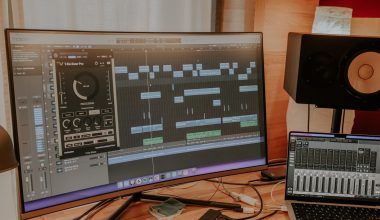Have you ever dreamed of hearing your voice, music, or story on the radio? Whether you’re an artist, business owner, or storyteller, getting on the radio can amplify your message, boost your career, and help you connect with a broader audience. But how do you make it happen?
Don’t worry! This guide will walk you through the process step by step, showing you exactly how to get on the radio. Whether you’re aiming for an interview, a music feature, or airtime for your ad, you’ll find practical tips to turn your dream into reality.
Why the Radio Still Matters
In a world dominated by podcasts and streaming services, you might wonder if radio is still relevant. The short answer is yes! Radio reaches millions of people every day. It’s local, personal, and a great way to connect with communities. Plus, many radio stations now stream online, giving you even more exposure.
Getting on the radio can:
- Boost your credibility
- Help you reach targeted audiences
- Open doors to new opportunities
Now that you know the value of radio, let’s dive into how you can get your foot in the door.
Step 1: Define Your Purpose
Before you approach radio stations, ask yourself why you want to get on the air. Is it to:
- Promote your music?
- Share your expertise?
- Market a product or service?
- Advocate for a cause?
Your purpose will shape your approach. For example, if you’re a musician, you’ll focus on pitching your latest track. If you’re an expert, you might position yourself as a guest for interviews.
Step 2: Research Radio Stations and Shows
Not all radio stations are the same, so it’s important to find the ones that fit your goals. Here’s how:
- Know Your Audience: Consider who you want to reach. Are they young? Professional? Local?
- Match the Station’s Style: Listen to different shows and note their tone, content, and target audience.
- Check Submission Guidelines: Many stations have specific processes for submitting music or pitching yourself as a guest.
Make a list of potential stations and shows, and tailor your approach to each one.
Step 3: Create a Winning Pitch
Your pitch is your chance to make a great first impression. Here’s how to craft one:
- Start with a Hook: Grab their attention in the first sentence. For example: “Hi, I’m [Your Name], and I’d love to share my story about [Topic].”
- Be Brief: Radio professionals are busy, so keep it concise.
- Include the Essentials: Mention who you are, why your content fits their show, and how listeners will benefit.
- Provide Samples: Attach your music, a demo, or a link to previous interviews.
Step 4: Build Relationships with Radio Hosts
Building genuine connections can go a long way. Here’s how:
- Engage on Social Media: Follow the stations and hosts you’re targeting. Like, comment, and share their content to get on their radar.
- Attend Events: Many radio stations host events or broadcasts. Attend them and network with the team.
- Be Respectful: Don’t bombard them with messages. A well-timed follow-up can be more effective than repeated attempts.
Step 5: Use the Right Tools
There are tools and platforms to help you get noticed:
- Press Kits: A professional press kit with your bio, photos, and samples can make a big difference.
- Radio Submission Platforms: Sites like SubmitHub and RadioAirplay help you pitch your music to multiple stations.
- Social Proof: If you’ve been featured elsewhere, mention it! Testimonials and past successes build credibility.
Step 6: Nail the Follow-Up
After you’ve sent your pitch, don’t just sit back and wait. Follow up in a respectful manner. Here’s how:
- Wait about a week before reaching out.
- Keep your message short, polite, and to the point.
- Reiterate your interest and include your original pitch.
Step 7: Prepare for Your Appearance
When you land a spot, preparation is key. Here’s what to do:
- Research the Show: Understand the format and audience.
- Practice: If you’re being interviewed, rehearse answers to common questions.
- Bring Value: Think about what you can share that will entertain or inform the audience.
Bonus Tips to Increase Your Chances
- Start Small: Local stations are more approachable than national ones.
- Stay Professional: Always communicate clearly and respectfully.
- Be Persistent: Don’t get discouraged by rejections. Keep trying!
Common Mistakes to Avoid
- Sending generic pitches
- Overloading your message with unnecessary details
- Ignoring the station’s guidelines
- Following up too frequently or not at all
Conclusion
Getting on the radio might seem intimidating, but with the right strategy, it’s absolutely achievable. Start by defining your purpose, researching stations, and crafting a compelling pitch. Build relationships, use the right tools, and always follow up. With persistence and preparation, you’ll soon hear your voice or music on the airwaves.
Now that you know how to get on the radio, it’s time to take action. What are you waiting for? Go make your radio dreams a reality!
For further reading, explore these related articles:
- Magical Christmas Songs for Kids: A Fun Holiday Playlist
- The Best Album Art Ever: A Journey Through Music’s Greatest Covers
For additional resources on music marketing and distribution, visit Deliver My Tune.






